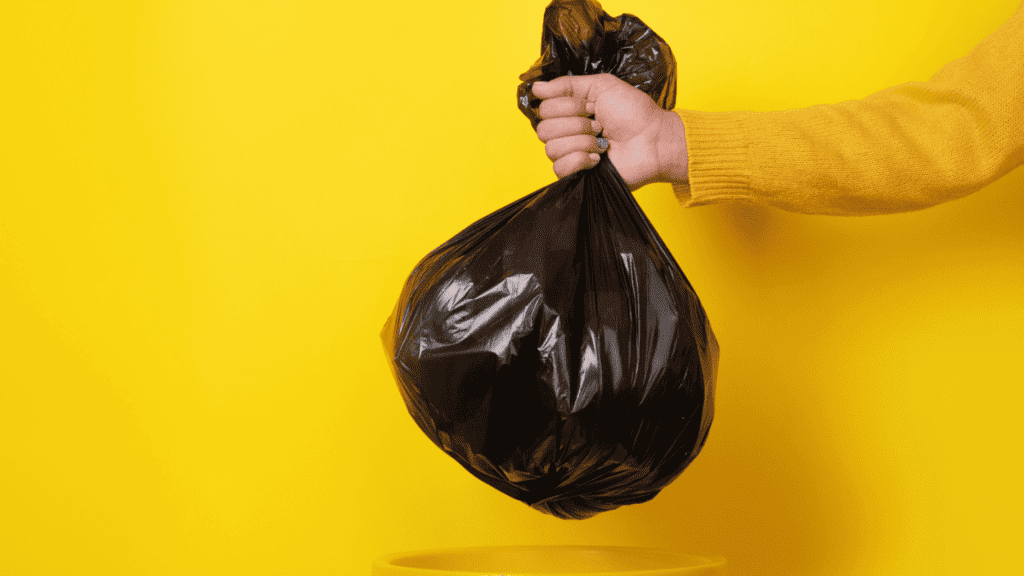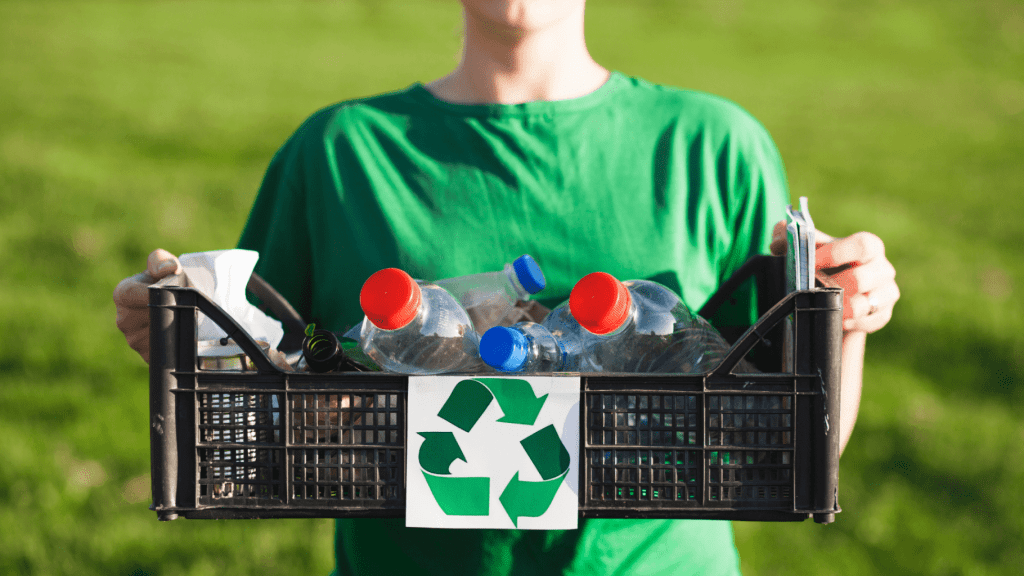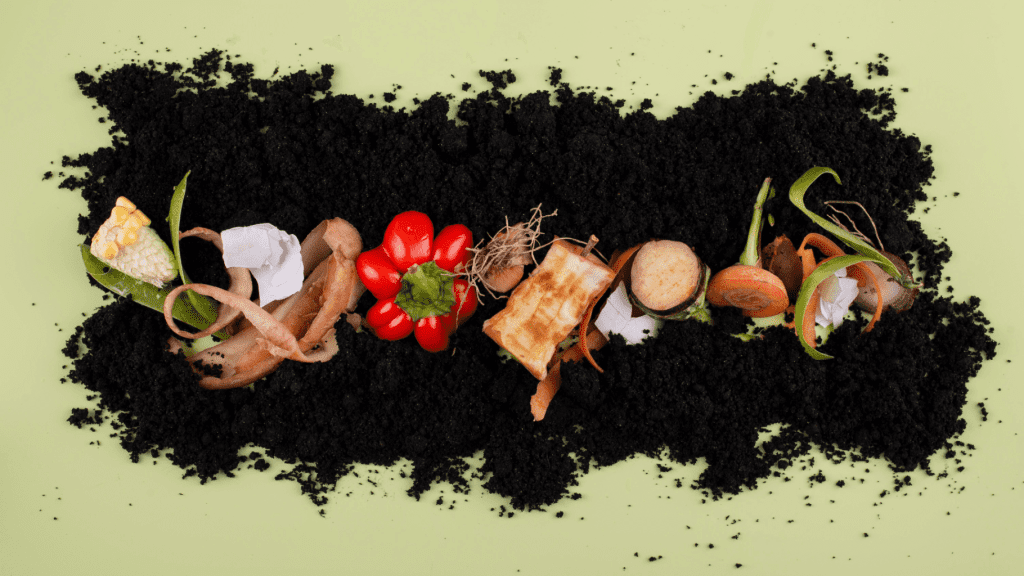Collection of waste and organic and recyclable materials - Delays to be expected
This notice remains in effect until further notice.
Waste
collection
Collection of
recyclables
Collection of
compostables
Waste
Collection time and instructions
- City-wide, collection is between 7 a.m. and 4 p.m.
- Waste must be placed at the curb between 7 p.m. on Monday and 7 a.m. on Tuesday morning, the day of collection.
- Some people get used to a routine of routes and the time at which the truck passes their street. Unfortunately, this habit is unreliable, as routes can change from week to week for a variety of reasons (mechanical breakdowns, etc.). This is why garbage cans must be placed at the curb no later than 7:00 a.m. on Tuesday mornings.
- For single family dwellings, collection is on Tuesday. For apartment buildings, condominiums, schools and daycares, pickup is twice a week, on Mondays and Thursdays.
- In school and daycare neighbourhoods, the collection company must pick up outside of the children’s regular arrival and departure times.
What if I don't get collected?
- Waste collection in the City is handled by private contractors mandated by the City.
- The contractor responsible for collection is given a two-hour grace period until 6 p.m.
- If a complete street has not been collected and it is after 6:00 p.m., please keep the bin on the curb, the contractor is obligated to return the next day.
Restrictions
While domestic refuse is collected by private firms contracted by the City’s Public Works Department, certain rules apply. Domestic refuse must be set out by the curb on collection day.
The refuse must be deposited in either:
- a metal or plastic container, which is closed, waterproof, equipped with handles and a cover, and has a maximum capacity of 0.36 m3 (12.7 cubic feet); or
- in a tied, non-perforated plastic bag of a maximum size of 66.04 cm x 91.44 cm (26 in. x 36 in.), from which no refuse can escape.
Accepted bulk waste
- Furniture
- Carpets
- Mattresses
- Pool covers
- Hot water tanks
- BBQ – Without the propane tank
Bulk waste accepted with restrictions
- Household appliances without Freon gas or halocarbons, without door or locks (stove, dishwasher, washer, dryer, etc.).
- Household appliances containing Freon gas or halocarbon foams that have been drained/secured by a licensed professional (refrigerator and freezer, pantry, water dispenser, plug-in air conditioner, dehumidifier, etc.) Household appliances must have no door or locks.
- Pieces of wood or metal no more than 1.2 m in length (4 ft.) tied in bunches
Excluded waste
Residual materials prohibited for your container or plastic bag:
- Household appliances containing Freon gas or halocarbon foams (refrigerator and freezer, pantry, water dispenser, plug-in air conditioner, dehumidifier, etc.) with the door or locks still in place. These must be disposed in ecocentres.
- Batteries and light bulbs: you can recycle them through specialized channels. There are also many collection points in supermarkets.
- Lithium batteries are a particularly high fire hazard and should be removed from equipment (electric trimmers, children’s toys, etc.) and disposed in ecocentres.
- Pool chemicals (chlorine, etc.) are a particularly high fire hazard and should be disposed in ecocentres or brought to one of the City’s HHW collections.
- Propane cylinders must be disposed in ecocentres or brought to one of the City’s HHW collections.
- Expired medications: should be taken to a pharmacy to ensure that they are disposed of in an environmental and safe manner.
- Edible oils: they can be disposed of in your regular bin in small quantities, but it is preferable to dispose of them in ecocentres or to bring them to one of the City’s HHW collections.
- Motor oil and other waste oils: you can dispose of them in ecocentres or bring them to one of the City’s HHW collections.
- Electronic and computer equipment as televisions, radios, video consoles, computers, screens, printers, etc. (a site is open 7 days a week for DDO residents).
- Tires: They must be returned to a garage or an ecocenter.
- All organic waste and all recyclables.
By depositing your waste in the right place, you contribute to the protection of the environment. You also contribute to the proper functioning of your municipal facilities and the safety of the employees who work there.
Excess volume rolling bins
Trucks are not equipped to empty rolling bins of more than 360 litres. However, if the bins contain bags that are tied, garbage collectors will empty them manually.
Exceptions
If a regular collection day falls on Christmas or New Year’s Day, pickup will be rescheduled and residents will be notified.
During busy periods of the year, i.e. May 1 to June 15 and October 15 to November 15, or during a snowstorm with more than 15 cm of accumulation, a two-hour grace period is granted to the collection company.
Organic material
Collection time and instructions
- Organic materials, which is made up of kitchen waste and green waste is picked up every Monday, between 7 a.m. and 6 p.m.
- Bins must be placed at the curb between 7 p.m. on Sunday and 7 a.m. on Monday morning, the day of collection.
- Some people get used to a routine of routes and the time at which the truck passes their street. Unfortunately, this habit is unreliable, as routes can change from week to week for a variety of reasons (mechanical breakdowns, etc.). This is why garbage cans must be placed at the curb no later than 7:00 a.m. on Monday mornings.
- The wheels must be facing the house and the lid must be closed but unlocked. Both green and kitchen waste can be deposited in the bin. Don’t overfill your bin; the lid must be completely closed.
- Any surplus green waste can be placed beside the bin in either a rigid container such as a garbage bin (weighing no more than 22.7 kg or 50 lb), or a biodegradable container such as a paper bag or cardboard box (not in the blue recycling bin).
- To facilitate the collections, the bins must be placed on each side of your driveway or if placed side by side, allow a clearance of at least 0.5 m (2 ft) between the brown bin and the blue recycling bin. Full or not, put your bin at the curb each week.
Accepted materials
- Kitchen waste such as fruits, vegetables, meat, bones, bread, pasta, cereals, etc.
- Green waste such as garden residues, small branches, leaves, grass, flowers, etc. Small tree branches must not exceed 25 mm (1 in.) in diameter and be tied in bunches with string or rope (no plastic or metal ties). No bunch may exceed 1.2 m (4 ft.) in length and 50 cm (18 in.) in diameter. Bunched tree branches may be left beside the brown bin for pickup with other organic waste.
- Other waste such as soiled cardboard (pizza boxes, etc.), soiled paper (tissues, paper towel, etc.), compostable plates, bowls and utensils, etc.
Refused materials
- Shredded paper ( if placed in a closed cardboard box or a transparent recyclable bag, it is collected during the recycling collection)
What if I don't get collected?
- Organic material collection in the City is handled by private contractors mandated by the City.
- The contractor responsible for collection is given a two-hour grace period until 6 p.m.
- If a complete street has not been collected and it is after 6:00 p.m., please keep the bin on the curb, the contractor is obligated to return the next day.
Frequently asked questions
Most Montreal area landfills are near capacity and will no longer accept organic matter due to the lack of space. Organic materials must now be directed to composting sites. Organic matter represents 45% of the waste sent to landfills. By collecting your organic materials we will significantly reduce the amount of unnecessary waste going to landfill sites. In addition, landfill costs are 30% higher than the costs to compost organic matter. The City of Dollard-des-Ormeaux produces over 20,000 tons of waste per year and by diverting organic matter from landfills we can generate significant savings.
Soon, organic matter will no longer be accepted in landfills. In the meantime, and because it is an imposed policy, the City is implementing organic waste collection as a transitional measure in order to gradually integrate citizens into these new practices. Citizens are strongly encouraged to participate in this new organic materials waste collection since it will be subjected to regulation.
One does not preclude the other. Citizens that already compost domestic materials are encouraged to continue to do so in order to profit from this practice. However, cooked table scraps that cannot be composted will have to be placed in the brown bin.
Paper bags are available at certain grocery stores and local retailers. Preventing odors from escaping the bin can be achieved by rolling the bags. Newspaper, which is listed among the accepted waste material, can also be used as an alternative bin liner.
As the brown bin is equipped with a lock to prevent animals from opening it, it can be left outside on the side of the house, provided it is not visible from the street. Moreover, the purpose of the brown bin is to ultimately replace your current garbage container, and it is of a smaller size that can hold 80 liters while garbage bins are generally more than 100 liters.
With the help of the Municipal Patrol we ensure that in between collection days, residents place their blue bins where it is not visible from the street. The same regulations is applied to the brown bins and the City requires the cooperation of all residents for the compliance of this request.
Recyclable material
Collection time and instructions
- There is one pickup per week on Mondays between 7 a.m. and 6 p.m.
- Bins must be placed at the curb between 7 p.m. on Sunday and 7 a.m. on Monday morning, the day of collection.
- Some people get used to a routine of routes and the time at which the truck passes their street. Unfortunately, this habit is unreliable, as routes can change from week to week for a variety of reasons (mechanical breakdowns, etc.). This is why garbage cans must be placed at the curb no later than 7:00 a.m. on Monday mornings.
What if I don't get collected?
- Recyclable material collection in the City is handled by private contractors mandated by the City.
- The contractor responsible for collection is given a two-hour grace period until 6 p.m.
- If a complete street has not been collected and it is after 6:00 p.m., please keep the bin on the curb, the contractor is obligated to return the next day.
Policy
The collection of recyclable materials is mandatory for all residents. The recyclable materials must be deposited in a rolling bin for single-family dwelling units and in rolling bins or portable containers for apartment buildings, condominiums, schools, daycares and places of worship.
The unsorted selective disposal program is intended for the recycling of glass, plastic, metal and paper. The program’s success depends on the informed participation of every household and the respect of conditions governing the types of recyclable materials and the proper use of bins.
Recyclable materials
The recyclable materials accepted in the blue bin are as follows:
- paper, cardboard, plastic, glass or metal containers
- packaging such as egg cartons and aluminum plates
- printed matter such as magazines, flyers or envelopes
Paper and cardboard
Accepted:
- Newspapers, flyers, magazines
- Telephone books
- Books
- Cardboard boxes
- Cereal, laundry soap and frozen food boxes
- Egg cartons
- Cardboard tubes and rolls
- Envelopes with window
- Paper with staples
- Shredded paper (to be placed in a closed cardboard box or transparent recyclable bag)
- Important: unpack cardboard boxes
- Important: paper and cardboard must not be soiled
Excluded:
- Metallized wrapping paper
- Carbon paper
- Wax paper
- Paper towels, tissues
- Soiled pizza boxes
- Padded envelopes
- Compost bags
Plastics
Accepted:
- All plastic containers identified by a small triangle in which the number 1, 2, 3, 4, 5 or 7 is embedded
- Multi-layer packaging such as milk cartons and juice boxes
- Bottles and containers that have contained any liquid, including shampoo, detergent, yoghurt, margarine, grease, etc,
- Lids and caps
- Plastic grocery bags (put all bags in one bag and tie tightly)
- Plastic film (rinsed milk bags, frozen vegetable bags, bread bags, sandwich bags, dry-cleaning bags, overwrapping of milk bags, paper towels, etc.).
- Important: rinse containers
Excluded:
- All plastics identified by a small triangle with the number 6 inside (polystyrene or styrofoam)
- Chip bags (greasy) or cereal bags or crackers (waxed)
- Plastic toys
- Discs, CD-ROMs, CD-ROM boxes
- Pool liners
- Computer parts
Metals
Accepted:
- Tins and cans
- Lids and caps
- Cans
- Aluminum containers
- Important: rinse containers
Excluded:
- Paint and solvent containers
- Hoses
- Nails, screws
- Bicycles
- Fans
- Pots and pans
- Cake moulds
- Electronic appliances
- Small household appliances (toasters, etc.)
- Batteries
Glass
Accepted:
- Glass bottles and jars in all shapes and colors
- Important: rinse containers
Excluded:
- Tableware
- Porcelain
- Pyrex
- Ceramics
- Crystal
- Window glass
- Mirrors
- Light bulbs
- Neon
Other materials that don't go in the recycling bin
Excluded:
- Clothing
- Protective masks
- Building materials such as wood, concrete and asphalt
- Black plastic bags (used for garbage, etc.)
Mandatory recycling bin
Every dwelling unit in the City will receive a wheeled bin.
Maintenance of the wheeled bin
- The bin is City property, but the resident is responsible for it;
- Maintenance of the bin (cleaning and disinfecting) is the citizens' responsibility. The bin must be clean at all times;
- Repairs to the bin (replacing wheels, cover or any other repair) must be reported to Public Works;
- If you plan on moving, the bin, being City property, must be left on the premises;
- You must write your address on the white strip of the wheeled bin.
Location of the wheeled bin for the mechanical collection
- The wheels and handle must face the residence and the bin must be at curbside. It is prohibited to put your bin on the sidewalk or on the street;
Extra recyclable material
- Recyclable items beside or on the wheeled bin will not be picked up.
- Contact the Public Works Department by Friday to arrange for pick up of any extra recyclables the following week at the same time as the regular collection.
Information
Public Works
- 514-684-1010
These guidelines are for information only and hold no legal value. The official text written in the bylaw takes precedence. Anyone violating these provisions (or permitting someone else to do so) is committing an offence and is liable to a fine.


